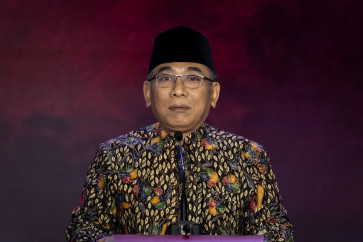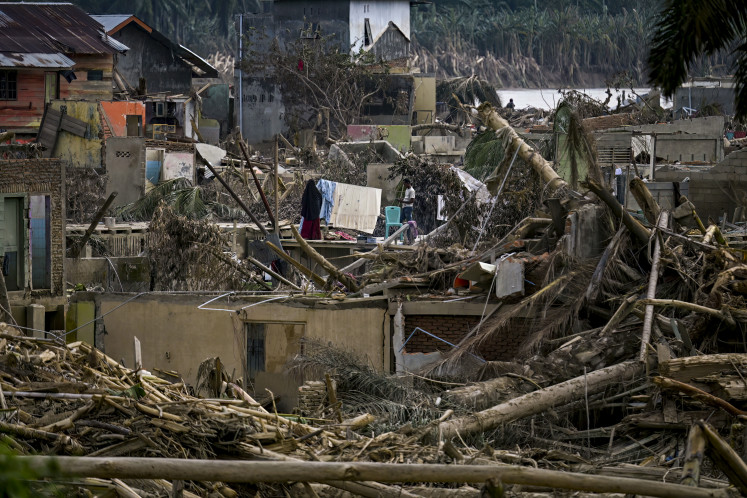Popular Reads
Top Results
Can't find what you're looking for?
View all search resultsPopular Reads
Top Results
Can't find what you're looking for?
View all search resultsRI biomass development needs more shells, says PLN
Indonesia, the world’s largest palm oil producer, needs to consider limiting the export of palm-kernel shells (PKS) to ensure supplies of the biomass material, as the country struggles to decrease its dependency on fossil fuels, state utility firm PT PLN says
Change text size
Gift Premium Articles
to Anyone
I
ndonesia, the world’s largest palm oil producer, needs to consider limiting the export of palm-kernel shells (PKS) to ensure supplies of the biomass material, as the country struggles to decrease its dependency on fossil fuels, state utility firm PT PLN says.
PLN’s construction director, Nasri Sebayang, said that many developers in Indonesia had expressed an interest in building PKS-fired power plants. “However, they have their concerns over supplies, as many producers prefer to sell their shells overseas,” he said in Jakarta.
Palm-kernel shells, which have a high calorific value, constitute a key biomass material that has the potential to replace fossil fuels in the future, according to Nasri.
Most palm oil producers in Indonesia, such as in Riau and Jambi, however, preferred to export the commodity to neighboring countries such as Malaysia, he said, adding that “many investors pulled back from constructing biomass power plants due to current realities.”
Nasri said that, given the situation, the government should consider regulating the trade system for palm oil producers in the country.
“If we can guarantee the supply of palm shells, I can assure you that many investors would be keen to start constructing biomass power plants,” he said.
PLN has been struggling to lower the country’s dependence on diesel power plants that burn subsidized fuel, which has contributed to the state budget deficit in the past few years.
Previous reports have said it would take at least 10,000 hectares of oil palm plantations to supply enough PKS to fire a 5-megawatt (MW) power plant.
Assuming one household uses approximately 1,000 kilowatt-hours (kWh), a 5-MW plant could supply power for 5,000 households.
Separately, Indonesian Palm Oil Association (Gapki) executive director Fadhil Hasan rejected the idea of having the government regulate the trade system for PKS, saying that to do so could elevate the commodity’s price.
“If PLN wants to utilize PKS as a source of energy for future power plants, they must be able to compete with other buyers,” he said.
Currently, PKS sell for around Rp 400,000 (US$40) per ton, according to the association, which claimed that Indonesia produced 6 million tons of PKS last year.
Energy and Mineral Resources Minister Jero Wacik urged business players last year to build as many biomass power plants as possible to replace fuel-based power plants.
The government also issued a ministerial regulation in 2012 to increase the price of electricity produced by biomass power plants in the hope that palm oil producers in the country would sell PKS domestically rather than abroad.
The Energy and Mineral Resources Ministry’s regulation No. 4/2012 sets the price of electricity from biomass power plants at Rp 975 (10 US cents) per kilowatt hour, slightly above the price for geothermal power plants of 9.7 US cents.
Several industry players in the country took the hint including the Growth Steel Group, which invested Rp 220 billion to build a 2x15 MW biomass power plant in Medan, North Sumatra, last year to supply electricity to industrial areas in the city.
PLN also plans to build several biomass power plants in the country in collaboration with private firms.
In 2012, PLN signed an agreement with US-based global technology and energy giant General Electric (GE) to set up a biomass power plant with a capacity of around 1 MW on Sumba Island, East Nusa Tenggara (NTT) utilizing wood chips to steam the plant.










